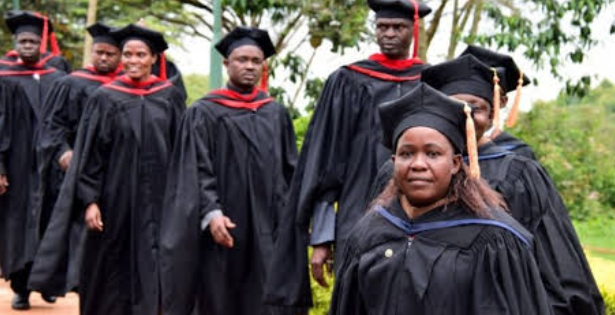Thousands of Kenyans seeking to acquire diplomas and certificates in public universities will have to look elsewhere after a house committee approved a bill that seeks to block them from getting enrolled.
Instead, public universities will only be allowed to offer postgraduate diplomas and postgraduate certificates if the bill is enacted into law.
The MPs also came to the rescue of private universities after it deleted amendments to two bills sponsored by private members seeking to stop the government from funding them.
The MPs argued that grants offered to private universities help in research and deployment initiatives.
The Departmental committee on Education and Research chaired by Tinderent MP Julius Melly approved the Universities (Amendment) Bill, 2023 by Embakasi Central MP Benjamin Gathiru Mejjadonk that wants universities barred from offering diploma and certificate courses as well as proposed amendments to the Universities Amendment Bill 2023 sponsored by Bumula MP Wamboka Wanami and another one by Khwisero Christopher Aseka that sought to ban the Kenya Universities and Colleges Central Placement Service (KUCCPS) from placing students in private universities.
In the report, the committee said that the bill by Gathiru is in line with the recommendations of the report of the Presidential Working Party on Education Reform (PWPER), that recommended that universities be barred from offering certificates and diplomas so that they only focus on degree programmes for optimum quality.
The committee noted that universities should stop offering diplomas and certificates as currently there are two bodies certifying certificate and diploma courses which has led to inconsistencies in the content and duration of the courses.
Reads the report: “The committee having considered the Universities (Amendment) Bill 2023 (National Assembly bills no 79) the submissions from the stakeholders and the sponsor of the bill recommends that the house approves the bill.”
The committee regretted that there have been challenges arising from permitting both universities and technical Vocational and Training colleges to offer certificate courses.
The challenges, he said, include duplication of roles, congestion in universities and underutilization of resources.Gathiru’s bill proposes that universities should only offer postgraduate diplomas and postgraduate certificates.
In his presentation before the committee, Gathiru said there is confusion ad inconsistencies in the content and duration of the courses and thus if the bill is approved, the Commission for University Education will have the function to recognize and equate postgraduate certificates and postgraduate diplomas conferred by foreign universities and institutions as opposed to basic certificates and diplomas.
At the moment, the certificates are ratified by the Technical and Vocational Education and Training Authority for technical and vocational colleges and Commission for University Education in the case of universities.
Reads the bill: “The principal object of this Bill is to end the practice of universities offering certificate and diploma courses. This is informed by the fact that there are two bodies certifying certificate and diploma courses.”
Adds the bill: “Limiting certificate and diploma courses to technical and vocational colleges will increase enrolment into these institutions. The technical and vocational colleges usually record low enrolment numbers despite the government investing heavily in these institutions.”
The MPs also proposed that all clauses in Wamboka’s bill be deleted.
The bill had proposed that Kenya Universities and Colleges Central Placement Service (KUCCPS) be barred from placing students to private universities thus denying them funding.
The bill also proposed that two vice chancellors be removed from being members of the board of KUCCPS.
In its report, the committee argued that the mandate of KUCCPS is not limited to placement of students in universities as it also acts as a database related to university and college placement, disseminating information on available programmes in universities as well as advises the government on student placement.
Already under the new funding model, the KUCCPS has not placed government sponsored students in private universities for the last two years.
Reads the report: “The removal of two board members representing private universities would disadvantage private universities since KUCCPS also acts as a database related to university and college placement.”
On Aseka’s bill that sought to abolish government funding to private universities thus barring KUCCPS from placing government sponsored students in such institutions, the committee argued that government grants provided are intended to support research and development initiates that benefit the public and thus should be maintained to continue fostering advancement that serves public good.





















Add Comment